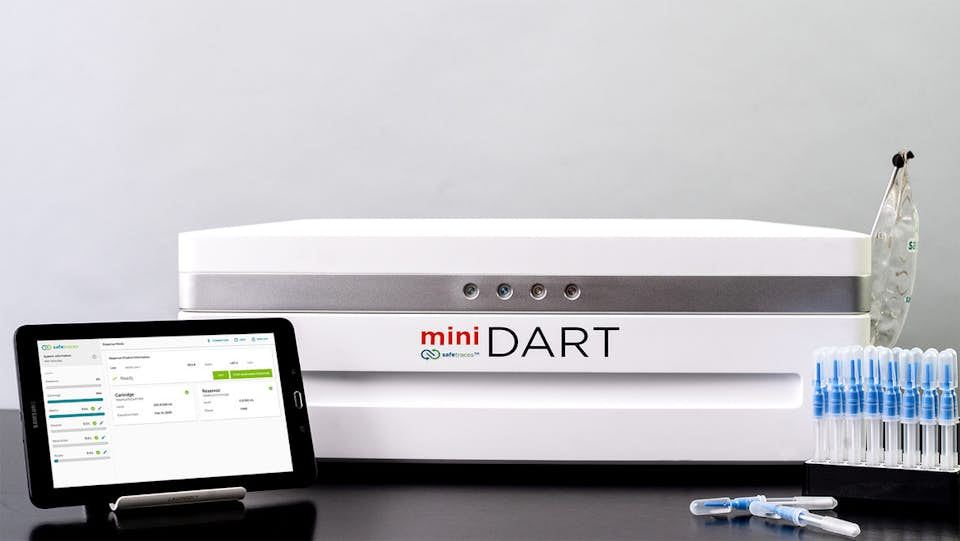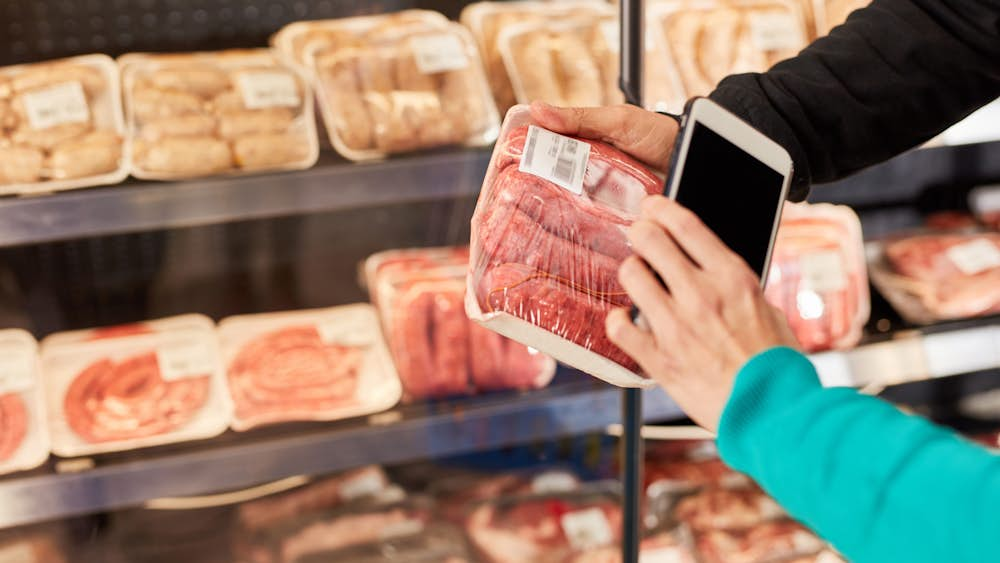Building trust with consumers
The loss of trust in brands is well-documented in the consumer goods industry. One study by NFU Mutual (n=604) reports that only 38% of consumers have confidence in their food supply chain. It is perhaps unsurprising considering high profile incidents such as the European horse meat scandal of 2013 or the multiple food poisoning outbreaks linked with restaurant chains. The horse meat scandal unravelled due to the identification of significant amounts of horse DNA in products marketed as beef. This raised concerns, not only about the origins of the product, but also the legitimacy and responsibility of the manufacturer. In order to re-build trust with consumers, proof of supply chain accountability and product origins is crucial.
DNA-based food tracking
Unlike external animal or product labels, DNA exists as an endogenous component of the meat product, making it immune to tampering or misplacement. Readings can be easily obtained at various points throughout the supply chain to build a picture of the product journey, and the origin of the product can be traced at any time.
DNA TraceBack (IdentiGEN)
In the horse meat scandal, DNA sequencing (IdentiGEN) was used to identify and quantify the level of contamination in the meat products. The technology, called DNA TraceBack®, allows meat products to be tracked from farm to fork, following the product through the entire supply chain. The technology involves taking DNA samples from the animal and genotyping it using PCR. The genotype is immediately associated with the identification label of the animal, creating a link between the DNA sample and data that has previously been collected during the animal's rearing. The sample is then stored for the entire life-time of the meat product, ensuring that it will be available for comparison at any point through processing and retail.
SafeTracers (SafeTraces)
Synthetic DNA barcodes provide a method for inserting an exogenous DNA signature into any food product. The synthetic DNA is introduced to the food product during processing and is fully integrated into the foodstuff. The SafeTracers™ are based on seaweed DNA, and can be recovered from every drop or grain of the product during subsequent stages of its journey. The DNA signatures can be applied to any product, including non-biological products. In addition, meat products that may be formed from a large number of different animals can also be traced. For example, it has been estimated that beef patties contain material from anywhere between 55 and 1,012 separate animals. Using the DNA barcode method, tracing processed meat products is also possible.
A device (DART) is integrated directly into the product processing line and generates individual barcodes for each bag or bottle of product, with a throughput of more than 20 barcodes per minute. The same technology can also be used to provide proof of product sanitation by adding so-called SaniTracers™ to the wash water used in food sanitation.

SaniTracers™ are applied to the wash water used in food sanitation and provide an indicator that a food product has undergone the appropriate sanitation procedures
DNA tracing in action
Several food companies and retailers have trialled the DNA tracing technologies in certain product lines, including UK supermarket chain Marks & Spencer, U.S. food giant Tyson Foods and Merieux NutriSciences.
Marks & Spencer
Marks & Spencer first implemented the TraceBack technology on their beef products in 2012. According to M&S's Head of Agriculture and Fisheries Sourcing, using this technology lowered customer complaints by more than one third and triggered a "tremendous uplift" in beef sales. The increase in beef sales are attributed to the M&S advertising campaign launched in 2018 with the tagline "we trace it so you can trust it." The supermarket are looking to expand their use of this technology in the coming months to trace the shrimp supply chain.
Tyson Fresh Meats
In 2019, Tyson Fresh Meats announced a new partnership with IdentiGEN. The US-based global food giant will use DNA TraceBack® technology to track their OPEN PRAIRIE® Natural Angus Beef products. Speaking about the partnership, Tyson Fresh Meats' VP of marketing and premium programs states “through DNA TraceBack, we’re providing our retail and foodservice customers with scientific evidence that they’re getting high quality, natural beef from animals raised the way we promised.”
Merieux NutriSciences
SafeTraces announced a partnership with Merieux NutriSciences in January 2019. The goal of this partnership is to integrate SaniTracers™ with the environmental monitoring program, EnviroMap®, providing a way for produce manufacturers to more easily manage their sanitation processes.
Conclusions
DNA represents a unique and highly accurate label to trace products through their supply chain. Several technologies have now been developed to integrate the immutability of DNA into supply chain tracing, and early results regarding consumer trust are very positive. Retailers have reported a significant reduction in consumer complaints and increases in sales. Early trials suggest that DNA tracking could provide the evidence that consumers are seeking in order to build trust with corporate food producers and retailers once again.

Dr Rachel Murkett
Project Director
Dr Rachel Murkett leads strategic intelligence projects at Biochromex. She holds a PhD in Chemistry from the University of Cambridge and has 6+ years of experience as a scientific consultant to consumer goods brands.
